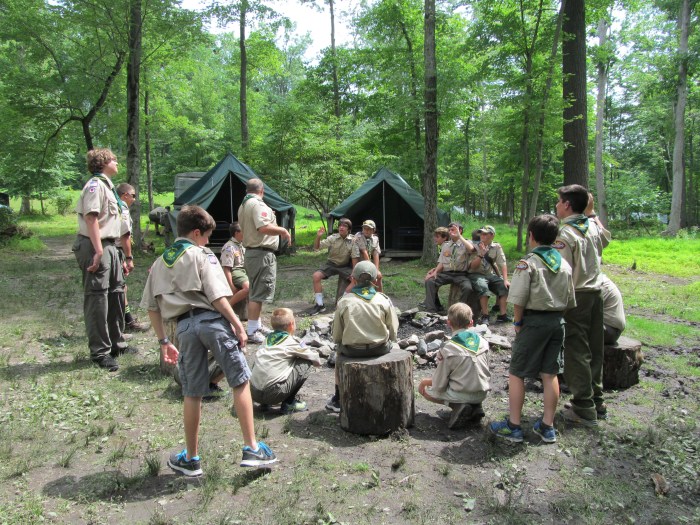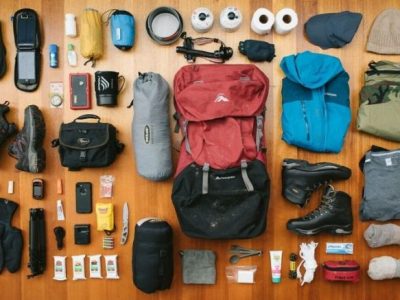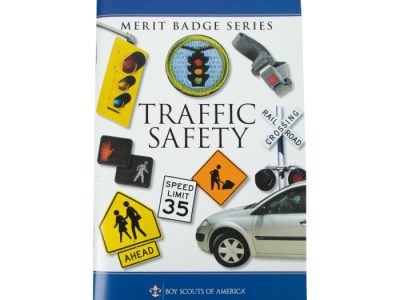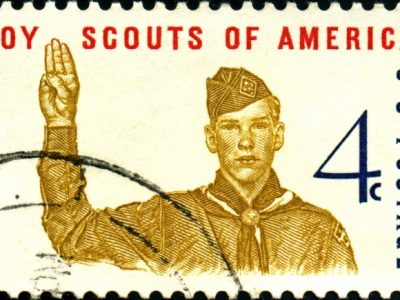Search and rescue merit badge training takes center stage, offering an in-depth exploration into the world of search and rescue operations. This comprehensive program equips participants with the necessary skills and knowledge to navigate challenging scenarios, providing a solid foundation for real-world applications.
The training modules encompass a wide range of topics, including navigation and map reading, first aid and CPR, search techniques, and rescue techniques. Each module is meticulously designed to impart key knowledge and develop essential skills through hands-on exercises and field training.
Overview of Search and Rescue Merit Badge Training

The Search and Rescue Merit Badge Training program is designed to provide Scouts with the knowledge and skills necessary to assist in search and rescue operations. The program covers topics such as map and compass use, first aid, and wilderness survival.
The training program is open to all Scouts who are at least 13 years old and have completed the First Aid and Wilderness Survival merit badges. Scouts who complete the training program will earn the Search and Rescue Merit Badge.
History and Background
The Search and Rescue Merit Badge Training program was developed in the early 1900s by the Boy Scouts of America. The program was originally designed to train Scouts to assist in search and rescue operations in the wilderness.
Over the years, the program has been updated to reflect the changing needs of search and rescue operations. Today, the program covers a wide range of topics, including urban search and rescue, water rescue, and aviation search and rescue.
Training Modules and Components

To ensure comprehensive training, the Search and Rescue Merit Badge program is meticulously organized into distinct modules, each focusing on crucial aspects of search and rescue operations.
Navigation and Map Reading, Search and rescue merit badge training
This module emphasizes the fundamentals of navigation and map interpretation, equipping participants with the skills to confidently traverse unfamiliar terrain. They will master using maps, compasses, and GPS devices to determine their location and plan their course.
First Aid and CPR
The importance of first aid and CPR cannot be overstated in search and rescue situations. This module provides participants with hands-on training in emergency medical care, including wound treatment, CPR, and stabilization techniques.
Search Techniques
Participants will learn various search techniques to locate missing persons or objects efficiently. They will develop skills in grid searching, tracking, and using specialized equipment such as search dogs and thermal imaging devices.
Rescue Techniques
This module focuses on the practical aspects of rescuing individuals from various hazardous situations. Participants will learn safe and effective techniques for extricating victims from entrapment, administering first aid, and transporting them to safety.
Practical Exercises and Field Training: Search And Rescue Merit Badge Training
The Search and Rescue Merit Badge training program incorporates practical exercises and field training to provide participants with hands-on experience in search and rescue operations. These exercises are designed to simulate real-world scenarios and enhance participants’ skills and knowledge.
The exercises are structured to progress in difficulty, starting with basic skills and gradually introducing more complex scenarios. Participants engage in simulations, drills, and field exercises that challenge their abilities in various aspects of search and rescue, including:
Search Techniques
- Grid and line searches
- Wilderness navigation and tracking
- Utilizing search tools and equipment
Rescue Techniques
- Basic first aid and CPR
- Patient packaging and transport
- Rope rescue and rappelling
Communication and Coordination
- Establishing communication channels
- Using radios and other communication devices
- Coordinating with multiple teams
Safety and Risk Management
- Hazard identification and mitigation
- Wilderness safety protocols
- Teamwork and leadership
Assessment and Evaluation

The assessment of participants’ knowledge and skills is a crucial aspect of the Search and Rescue Merit Badge Training program. Through various methods, the program ensures that participants have effectively grasped the essential concepts and acquired the necessary skills to contribute to search and rescue operations.
The criteria for successful completion of the training are clearly defined and communicated to participants. These criteria typically encompass a combination of theoretical knowledge and practical proficiency. Participants are expected to demonstrate a thorough understanding of search and rescue techniques, safety protocols, and communication strategies.
Assessment Methods
To evaluate participants’ progress and determine their readiness for the field, the training employs a range of assessment methods. These methods provide a comprehensive assessment of participants’ knowledge and skills.
- Written Exams:Written exams assess participants’ theoretical knowledge of search and rescue principles, techniques, and safety procedures. These exams typically involve multiple-choice questions, short answer questions, and essay questions that test participants’ understanding of the subject matter.
- Practical Demonstrations:Practical demonstrations provide an opportunity for participants to showcase their skills in a simulated search and rescue environment. These demonstrations may involve tasks such as using a compass and map, performing first aid, and setting up communication systems.
- Simulations:Simulations create realistic scenarios that challenge participants to apply their knowledge and skills in a practical setting. These simulations may involve mock search operations, rescue exercises, or emergency response drills.
Benefits of Completing the Training
Completing the Search and Rescue Merit Badge Training offers a plethora of benefits to participants, empowering them with the knowledge and skills necessary to effectively contribute to search and rescue operations. Through comprehensive training modules and practical exercises, participants gain a deep understanding of search and rescue techniques, enabling them to respond confidently and efficiently in real-world emergencies.
The training enhances participants’ abilities to assess situations, navigate challenging terrain, communicate effectively, and provide first aid. These skills are invaluable in various scenarios, including wilderness searches, disaster response, and urban search and rescue operations.
Real-World Applications
- Participants can apply their knowledge and skills to assist in locating lost hikers in remote wilderness areas, utilizing search techniques learned during the training.
- During natural disasters, trained individuals can provide support in evacuating affected communities and searching for survivors amidst collapsed structures.
- In urban search and rescue operations, participants can contribute to locating victims trapped in confined spaces, utilizing specialized equipment and techniques covered in the training.
Wrap-Up

Upon completing the Search and Rescue Merit Badge Training, participants emerge with enhanced capabilities and a profound understanding of search and rescue operations. The training serves as a catalyst for individuals seeking to make a meaningful contribution to their communities, equipping them with the confidence and competence to respond effectively in times of need.
Detailed FAQs
Who is eligible to participate in the Search and Rescue Merit Badge Training?
The training is open to individuals who have completed the Boy Scouts of America’s First Aid and CPR courses.
What are the benefits of completing the training?
Participants gain valuable skills and knowledge in search and rescue operations, enhancing their ability to assist in emergency situations.
How is the training assessed?
Participants are evaluated through written exams, practical demonstrations, and simulations to ensure proficiency in the covered topics.





